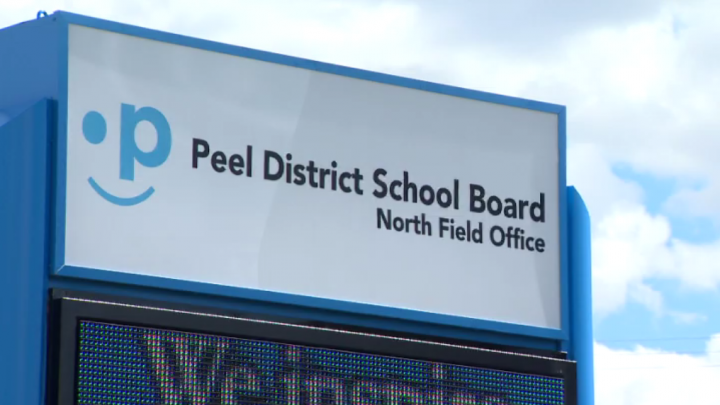A school board west of Toronto is facing calls to be more transparent about the so-called “weeding” of its libraries amid concerns some books are being removed from collections solely because they were published before 2008.

Students who attend schools in the Peel District School Board say they’ve seen half-empty shelves at their libraries as the school year begins, with some popular fiction texts missing.
The board needs to provide a clear explanation on what has happened, the students say, and share details on how libraries with half-empty shelves will be replenished.
“I’m actually very concerned and I’m very confused,” Saisha Luciani, a 15-year-old student at a Mississauga, Ont., school in Peel Region, said in an interview Thursday.
“These books were resources for students like me to get into universities, to write essays, to do better in school.”
Ontario’s education minister asked the board this week to put an immediate stop to its weeding process _ which assesses and removes older books _ saying it was “illogical” to remove books from years past that educate students on history, antisemitism or are celebrated classics.
The board has said older books, regardless of publication date, are allowed in schools if they are “accurate, relevant to the student population, inclusive, not harmful, and support the current curriculum.”
- Toronto Pearson food service workers return to job after ratifying tentative deal
- Animal activists thrilled after parts of Ontario agriculture law unconstitutional
- Infant, grandparents killed in Highway 401 crash after police pursuit from LCBO robbery
- Ontario to ban cellphones in classrooms. What’s changing and how will it work?
Luciani, other students and an advocacy group made up of concerned Peel school community members said it appears some texts have been removed just for being more than 15 years old, based on new board weeding guidelines that instruct librarians to carry out the process with an equity lens
Reina Takata, a Grade 10 student, said her school librarian recently informed students that books published before 2008 were no longer available since the board implemented its new weeding guidelines earlier this year.
“A lot of my favourite books are published before 2008 and if I don’t get a chance to read them, that’s pretty upsetting for me,” Takata said Thursday while standing outside her school in Mississauga.
“I noticed that ‘The Hunger Games’ is now gone. ‘Harry Potter’ series is gone…Now there are rows upon rows of empty shelves. Why wasn’t our opinion consulted as students?”
Takata and Luciani said they’d like to see the board clearly communicate with students to explain its weeding plan and provide details on whether books that may have been removed in error will be replaced.
The board did not respond to questions Thursday about the calls for transparency.
Rashmi Swarup, the board’s executive director, issued a statement a day earlier saying the board has not given teacher librarians direction to remove all books with a publication date older than 2008, nor has the board received provincial direction to remove particular books from collections.
She said the Peel board follows library weeding guidelines set by the Canadian School Libraries Association and will be reviewing its training process to ensure consistency across schools.
“To be clear, books such as ‘The Diary of a Young Girl’ by Anne Frank and the ‘Harry Potter’ series remain in our collections, and where needed, newer versions may be purchased if the book is in poor condition,” she wrote.
Anita Brooks Kirkland, the chair of the Canadian School Libraries Association, said the process of weeding has long been carried out to ensure collections are up-to-date, in good condition and represent the student population.
Other factors in weeding include assessing whether the book carries misinformation, is relevant to the times, whether it’s misleading, or reinforces racist content or information that is not gender affirming.
“For academic libraries and universities, their mission is to basically collect the knowledge of humanity over time so they’re going to be far less likely to weed a lot of resources,” Brooks Kirkland said.
“That is not the purpose of school library collections. School library collections are there to provide current, accurate information to kids, young researchers, and to provide a collection that engages to build a habit of lifelong reading.”
The Peel board needs to do a better job of clearly explaining to the school community how its weeding process is being carried out and how books will be replaced, she said.
“I’d be asking (them) about what are the plans for improving the collections and updating the collections,” she said.



Comments